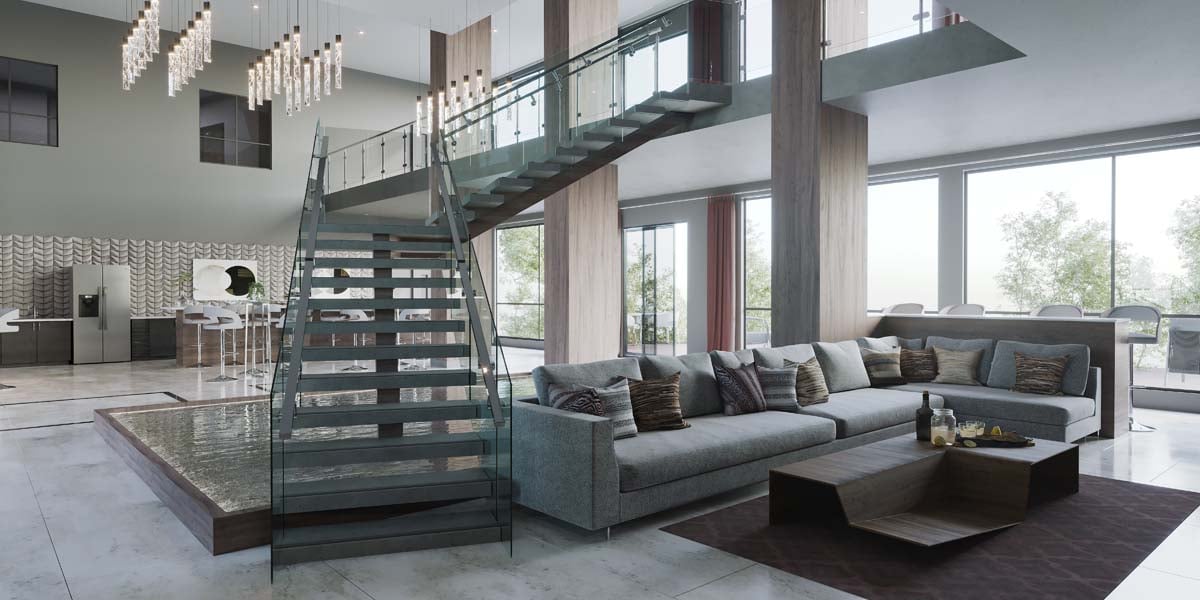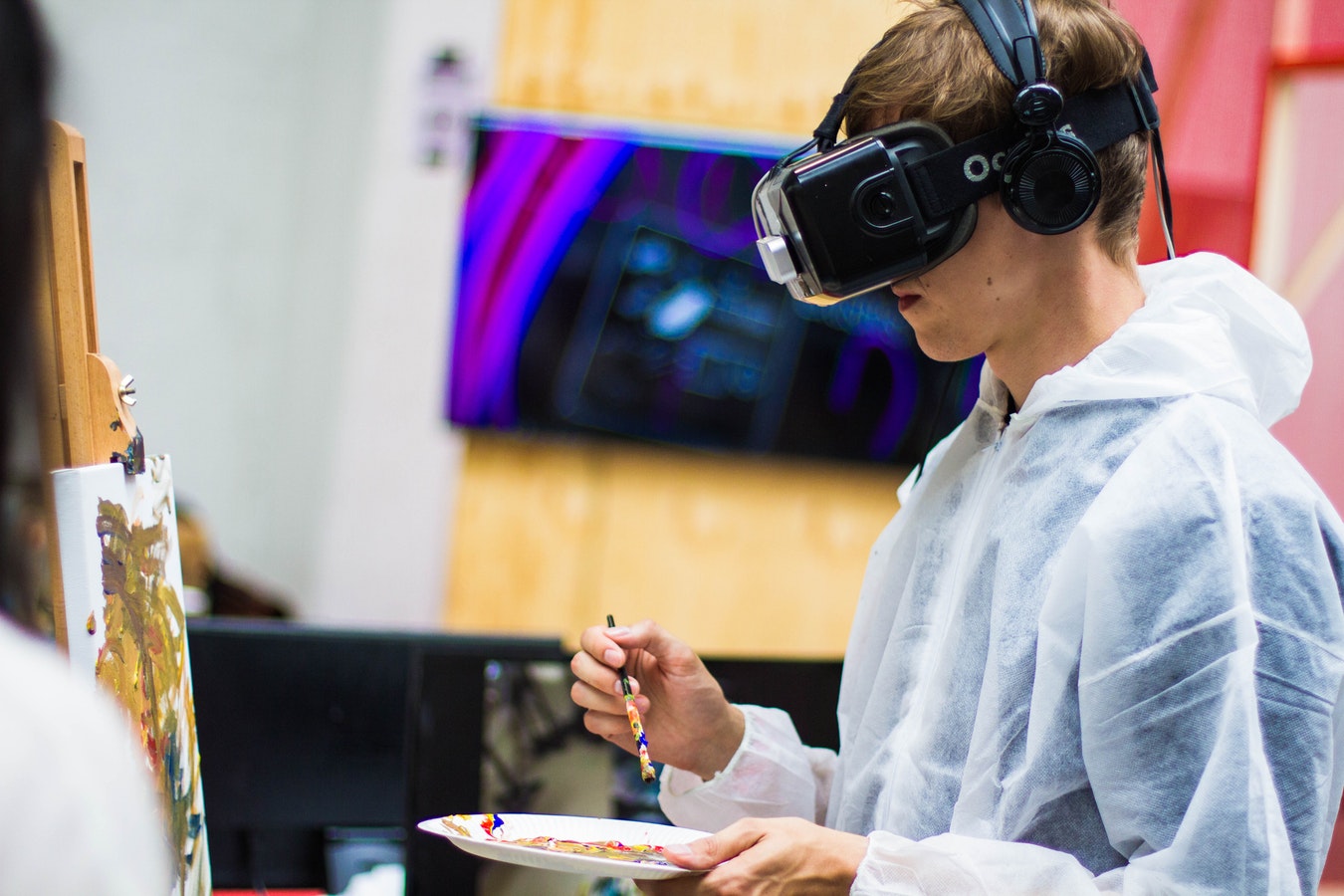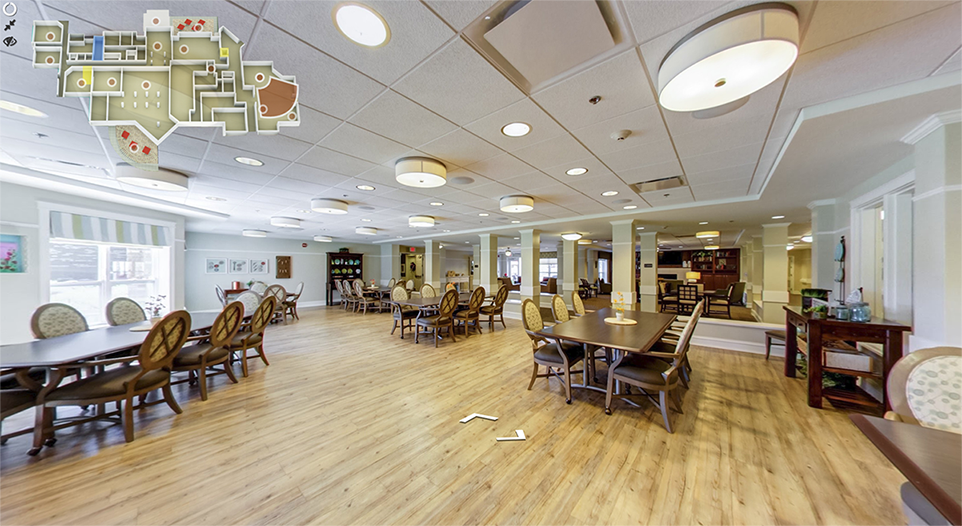What is the Future of Virtual Reality?
Virtual reality is now a hot topic in tech. Is virtual reality the next big thing? Is virtual reality the future of how we digest information? Where...
It’s been estimated by Goldman Sachs that by 2025, the virtual reality market will be worth $80 billion, with $2.6 billion coming directly from the real estate industry.
Virtual reality continues to grow in popularity with new headsets coming out and prices in headsets beginning to gradually drop.. In 2018, we witnessed that virtual reality had quite an impact on companies across major industries and that same trend is expected to last through 2019.
As VR slowly begins to saturate industries, marketing efforts have begun to shift. Soon, two-dimensional content will no longer suffice when it comes to digital and visual content.
![]()
Industries like real estate, healthcare and education have an opportunity to excel with the use of VR. For starters, virtual reality helps these types of industries stand out from the competition as the technology is still relatively new.
Related: 5 Ways VR Will Launch the Medical Field Into the Future
Developers, brokers and management groups are at the frontline of virtual reality. It’s best to be aware of the impact and benefits that come with VR.
Here are a few ways that VR will changes the game in 2019.
Purchasing an apartment, deciding what college campus to choose or even deciding what senior living community your parents will live in all have one thing in common: they require a physical on-site tour.
In the past, families spend weekends visiting locations, looking at houses and touring college campuses with their kids.
VR has completely changed the way potential customers view a location. In fact, according to a survey by Coldwell Banker Real Estate, 62% of those polled said they would prefer an agent who made VR technology available.
With headsets readily available and some offered at an extremely low price, such as the Google Cardboard, customers can tour a desired location from the comfort of their own home.
If we consider that 41% of millennials are renting apartments without seeing them first, virtual reality opens up opportunity for property managers and developers to market to them.
One in three people now make offers sight-unseen due to living long distance or not having the time to visit a property in person.Virtual content helps potential buyers feel more comfortable with a property and providing VR tours creates an edge for your property to increase sales and leases.
An end product can be pretty difficult to imagine if the only thing that exists is a hole in the ground with no building in sight. Developers and property managers face difficulties communicating what they envision with no rendering to base it on. And marketing a building after its completion is far too late in the process to secure signed leases.
Enter 3D virtual reality tours.
With 3D, developers can convey to the architects the layout, design, materials and even the furniture before construction begins.

With VR, clients are able to experience what the space will look like and develop interest for future sales. With potential clients looking at your space at the early stage of development, you can have your units already sold or leased by the time you open the door.
Properties with nice photography and virtual tours get more attention simply because they are more appealing to people.
The technology of VR is a great tool for marketing to increase sales, and sometimes even before the space is completed with the use of 3D Renderings.
It’s hard to imagine selling a space that does not exist or a space that in reality is a construction nightmare. The VR technology breaks that barrier, and many companies today are already utilizing it for pre-leasing and various marketing efforts.
The ways that VR can be used is endless, here are just a few examples:
VR allows for the staging of any space to help the client visualize it as a future home and not just another empty property. This type of personalization helps build an emotional connection with the client and result in a sale.
VR is taking over the real estate industry from saving time for potential clients to providing additional marketing tools for agents.
With that said, people are already looking at what’s next and that is virtual commerce. Virtual commerce will allow people to customize their VR tour.
A client who is interested in an apartment will be able to change up the interior by adding furniture, repainting the walls a different color or trying a different layout of the model unit.
Creating a personalized apartment helps people connect with it better and imagine it as their future home.
The future of VR continues to evolve, but one this is for sure, no one can escape it.

Virtual reality is now a hot topic in tech. Is virtual reality the next big thing? Is virtual reality the future of how we digest information? Where...

There are many examples of how virtual reality can be used. From games and entertainment to education and training, VR is quickly becoming a new tech...

In one of our previous blogs, we discussed how versatile virtual reality can be in hospitals and medical centers. In this blog we discuss how virtual...